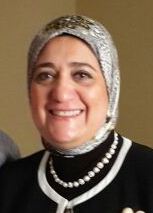Speakers
 Prof Sherine Al- Shawarby
Prof Sherine Al- Shawarby
CAPMAS representative/ Professor, FEPS- Cairo University
Biography:
Prof. Sherine Al-Shawarby is a professor of economics at the Faculty of Economics and Political Science in Cairo University. She is member of the Board of the National Planning Institute, member of the editorial board of the Egyptian Journal of Development and Planning, member of the Board of Trustees of the Egyptian House of Zakat and Sadakat and of the Egyptian Center for Global Governance and Development. She also worked as the Vice Dean of the Faculty, advisor of the President of the Central Agency for Public Mobilization and Statistics (CAPMAS) for the Economic and Mobilization Statistics between April and August 2015, and as Deputy Minister for Economic Justice and the Executive Director of the Economic Justice Unit at the Ministry of Finance between November 2013 and September 2014. Prior to that, Al-Shawarby was a Senior Economists at the World Bank between June 2001 and July 2013. During this period, she co-authored many of the reports on the performance of the Egyptian economy, and on poverty, inequality, and efficient subsidy system in Egypt and in MENA region. Al-Shawarby has published numerous studies that cover a wide range of economic issues in Egypt: the exchange rate, trade, inflation, fiscal sustainability, subsidies, inclusive growth, poverty, inequality, social protection, and social justice.
"Using population surveys to measure and monitor poverty: the case of Egypt"
The presentation will provide a general overview of how the use of different types of surveys, in combination with censuses and other data sources, helped the Egyptian policy makers designing policies that better address poverty in Egypt during the last two decades. The presentation will focus on uses like measuring poverty and well-being indicators, setting out the poverty profile and determinants to assess the effect of economic changes on aggregate poverty, develop tools that target poor households (PMT) or poor regions (poverty map), and develop a poverty reduction strategy. Uses also include the Benefit Incidence analysis of various types of subsidies, their poverty impact, leakages and waste; which provided a strong evidence for urgent needs to reform Egypt’s subsidy system. Finally, other uses being emphasized in the presentation comprise measuring inclusive growth, examining economic mobility (the panel part), understanding the inequality puzzle (increased malaise with low Gini), exploring the food security status, inter alia.